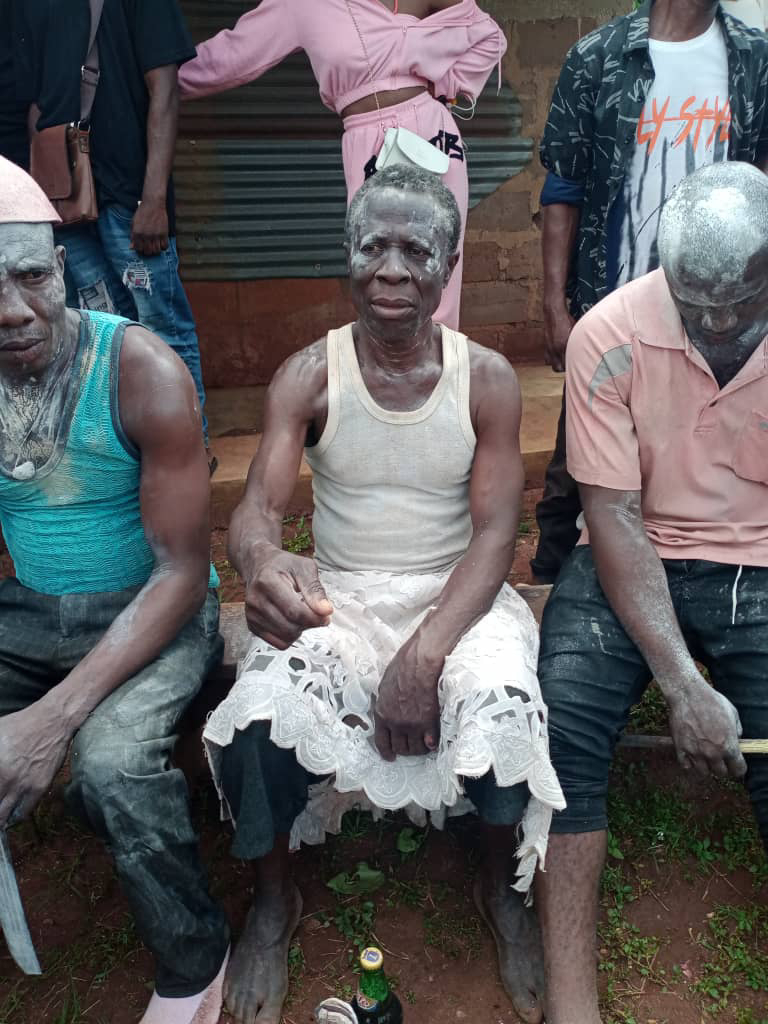Owerre Olubor's Ogbanigbe Festival
Oct 15, 2023
The name Owerre Olubor is synonymous with hospitality. A people accommodating and establishes unique relationship among strangers and her people.
Owerre Olubor is a land located in Ika North-East local government area of Delta State. Popularly known with her most celebrated Ogbanigbe festival and Ogwudeship form of leadership.
We do not push aside the memory of moonlight tales by our forefathers,that created bond and lasting love among families and people,a time children listen to parents and ask reasonable questions. This has led us to being able to retrace our values and strengthen our traditions where it matters,and thus leads a run down memory lane to Origin of Ogbanigbe Festival.
Long ago in memory,it happened that Olubor's father who is Diagbor fell ill in the land of Ejeme-unor Aniogor where he lived with his Son Ejeme, a younger brother to Olubor.
The message was brought by Ejeme to his brother Olubor there in Owerre-Olubor, which was his father's first home before he went Eastward for hunting,and left his Son Olubor and his younger brother Ese to care for. On hearing the news about his father, decided to go see how he's faring.
It came to pass that at the arrival of Olubor to seeing his sick father, discovered how serious his ailment was, decided to take him down to Owerre-Olubor for proper traditional medication.
In the course of their journey,they came to Ubulu-uku where their friend Ezemu recides,who took them in after a long journey,made them feel at home. But this did not calm the situation of the sick old Man,then decided Olubor to take his resident.
As it deemed fit for farewell departure,Ezemu and some of his friends decided to escort Olubor and his father and were chanting songs which I could leave a line, 'Enije eni elunor"(safe journeyed song).
This they did till the arrival of Diagbor in Owerre-Olubor. The sick old Man was treated and recovered his healthiness.
This did not alone prompt celebration among the people,but recalling the perilous time of hardship, famine and deaths(epidemic).
The epidemic and death of people was so bad, that efforts to stop it proved abortive. This led to the meeting of Eze Dibie (head of native doctors) and Ndi Omu (Community Women Watchers) of the various Communities. At the meeting, they decided to consult a powerful Medicine Man to find a lasting solution to the epidemic and death of people.
The medicine man told them that the gods of the Land are angry as they plant, harvest and eat without thanksgivings to the gods of the land. He ordered them to inform the head of every family in their various communities to:
1. Go to their various farm lands on the day, the Sun will be shining and the Rain falling at the same time to do sacrifice (Ilo Chi) with a mixture of boiled and grounded yam and palm oil which is called (ebubu) the sacrifice is called Ifagiokun. This was where the slogan, "Miri ri ezo, Anwu ri amu, Mgbadan ri ofia, aro chi" emanated from.
2. Gather all families of the same Kindred to cook differently in their various homes and eat together in the house of the elder of the Kindred as a sign of love, unity and peace. This is called Nni-Ifajiokun.
3. Celebrate the provision of New Yam which was the major crop in those days, called Iwa Ji. The real Festival.
4. Use Ndi Igbe (traditional medicine group that uses white chalk to detect evil ones) to lead the dance group round their various communities to appease the gods of the land in celebration of the New Yam and mourn those that died during the famine and epidemic, hence the name Ogbanigbe in all the communities mentioned above.
The festival is not called Ogbanigbe but Iwa-Ji Festival. This stage is called Ime Egwu while Ogbanigbe is the dance group as it was led by Ndi Igbe that must carry the traditional white chalk for Ndi Nzere (traditional chiefs) to clear the road against the evil spirits.
They must be in front and only group to appear in white attire while others must disguise themselves as sign of regret for neglecting the god of the land and mourning.
5. Plant a Life Tree (Agbor) at the back of the Deity which will be cut down every year to know if the sacrifices were accepted or not and if the tree will grow back to life again after cutting it. This is called Igbu Agbor which is performed as the last instruction after the celebration of new yam and mourning of the dead. All the above instructions must be done under one moon (One month). When mad people begins to be violent, you know that Agbor has started to grow as a sign.
After the instructions were obeyed, everything returned to normal then and it became an annual event till date to appreciate the God of the land for the provision of food and protection of life. Just as we have the celebration on NKWOR day before UKA-EKEN.
The celebration of Ogbanigbe Festival is celebrated once in a year in October. It is quite an enviable scene that attracts other communities and foreigners to witness.
Owerre Olubor owns the Ogbanigbe Festival and the story,our rhythm says it all..like it is said; "the tree that bears sweet fruits gets highest throw of stones".
OGENI AKAINE NI OO
Written by Bro. Chijioke Emordi & Mr Kentus.
Facilitated by Owerre Olubor progressive Union (youth wing).




Comments
Post a Comment